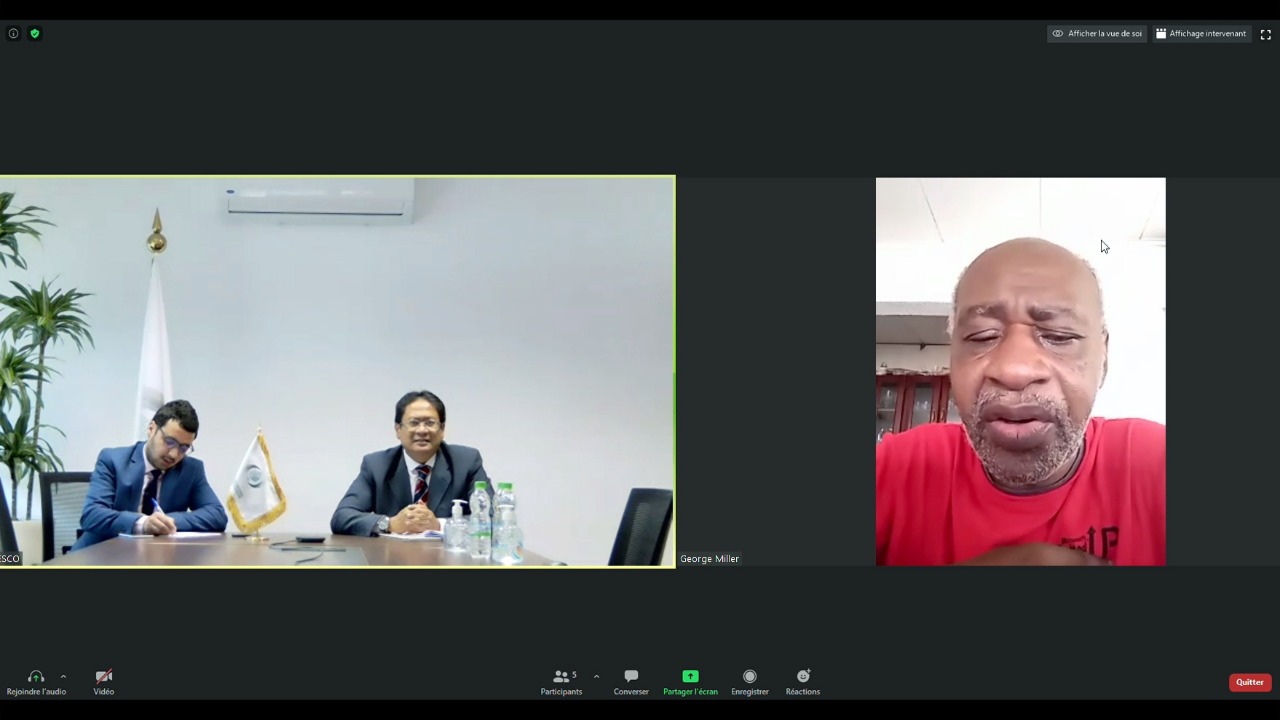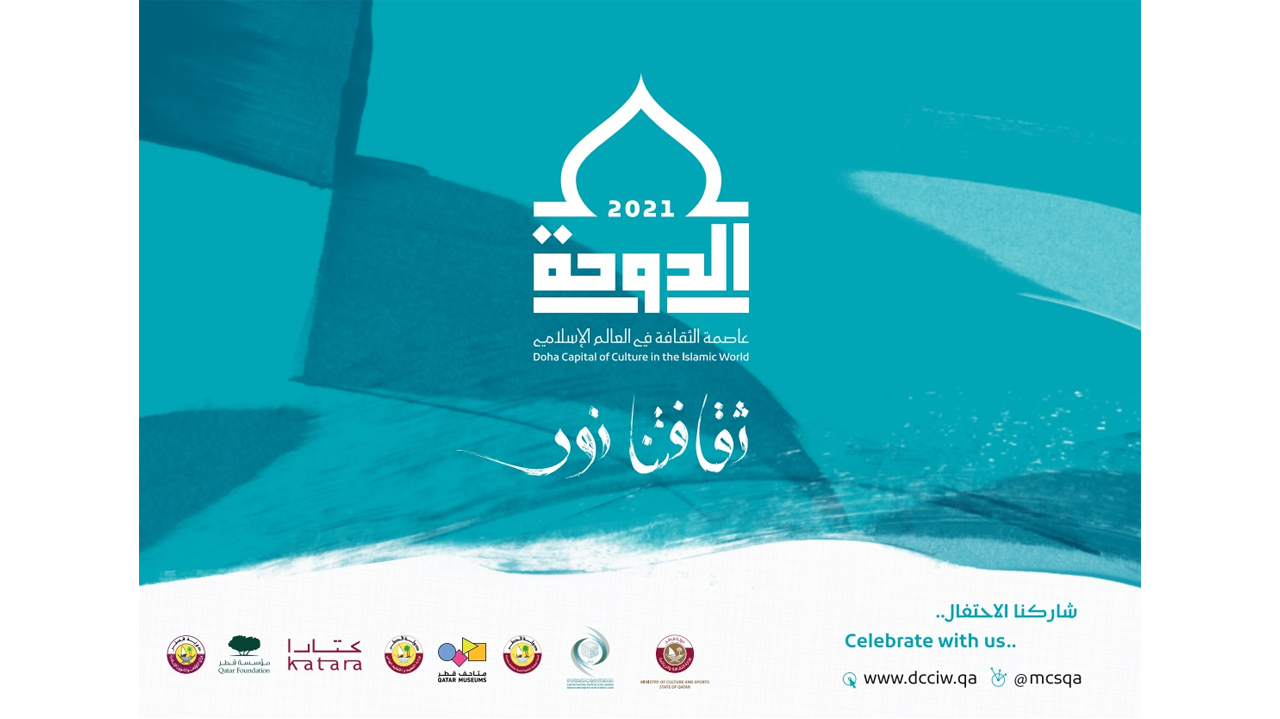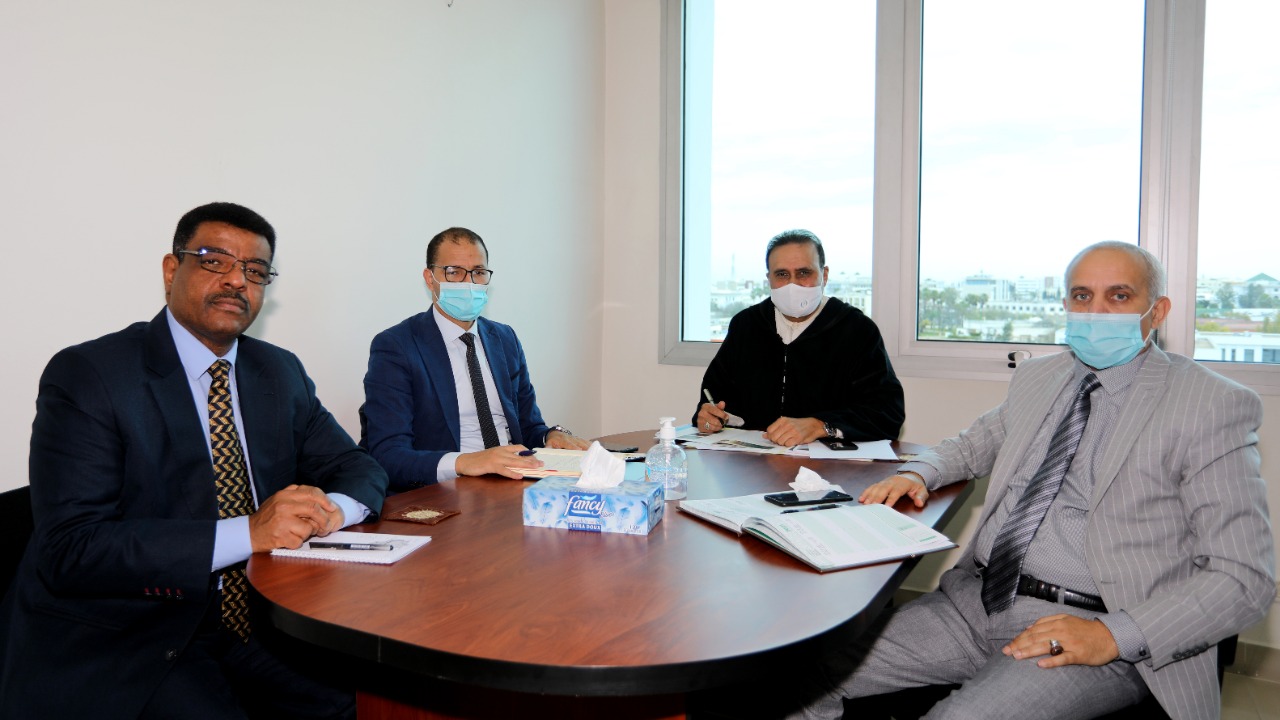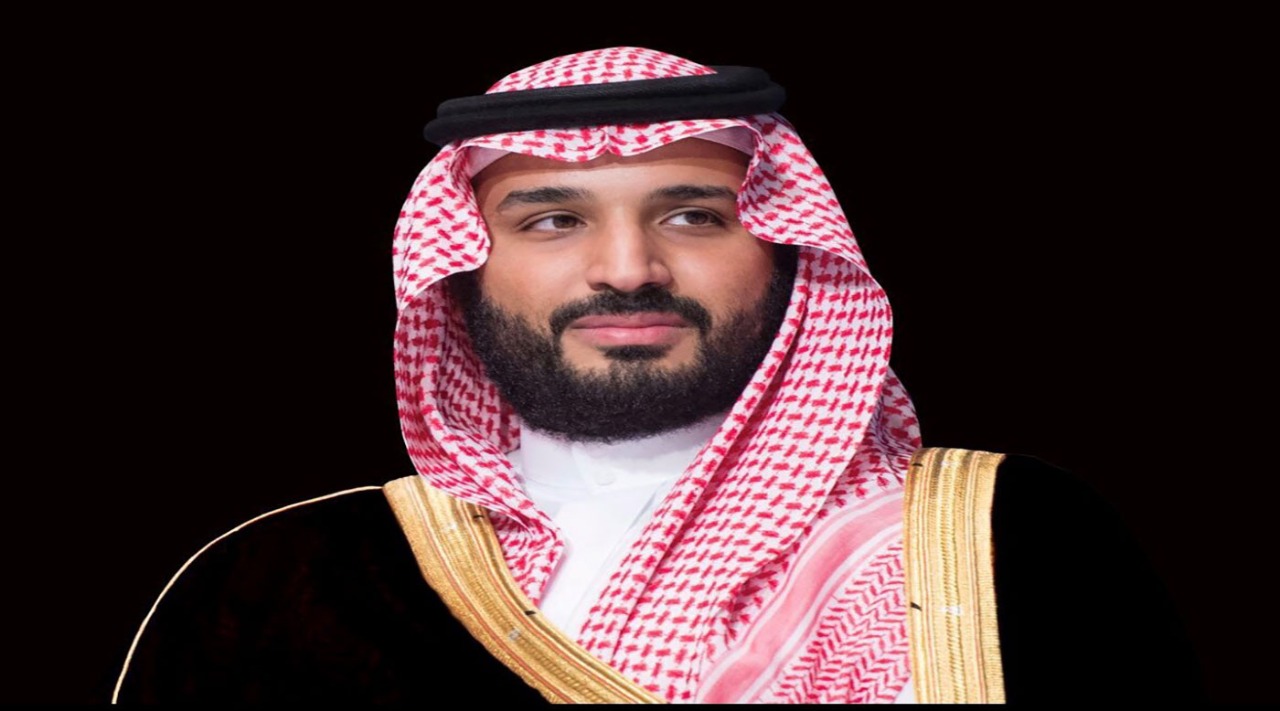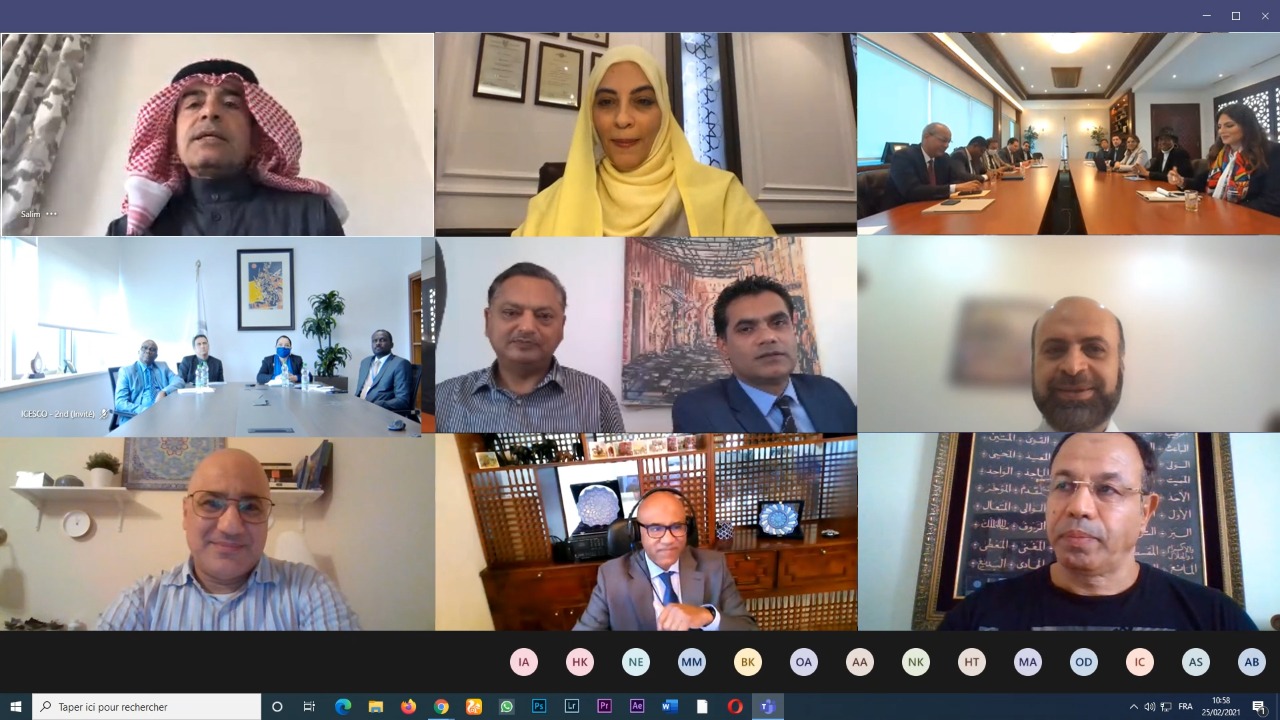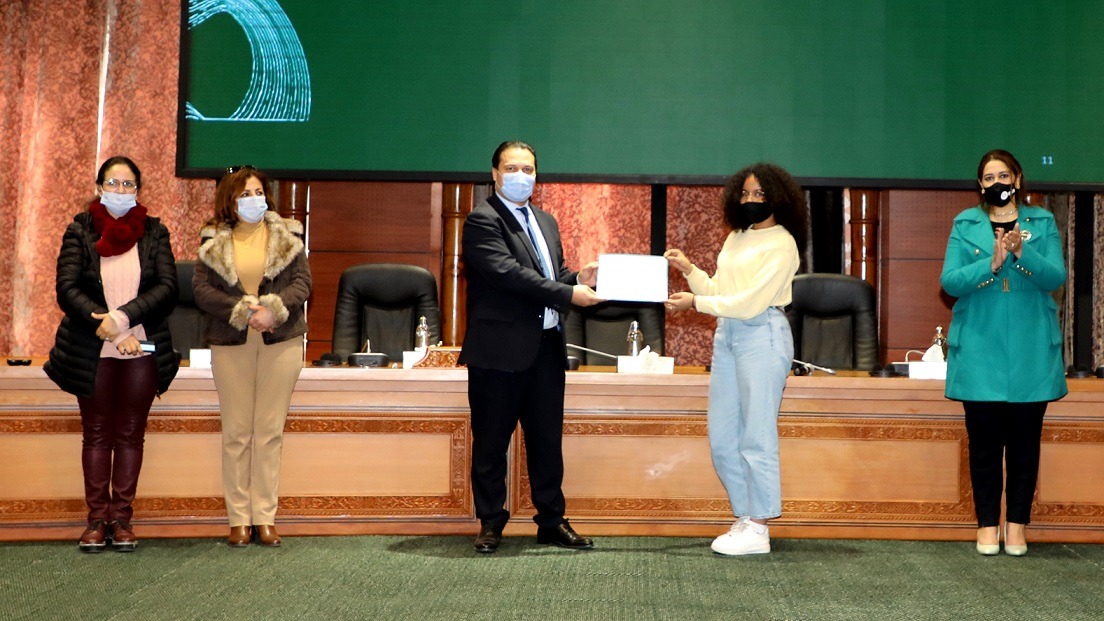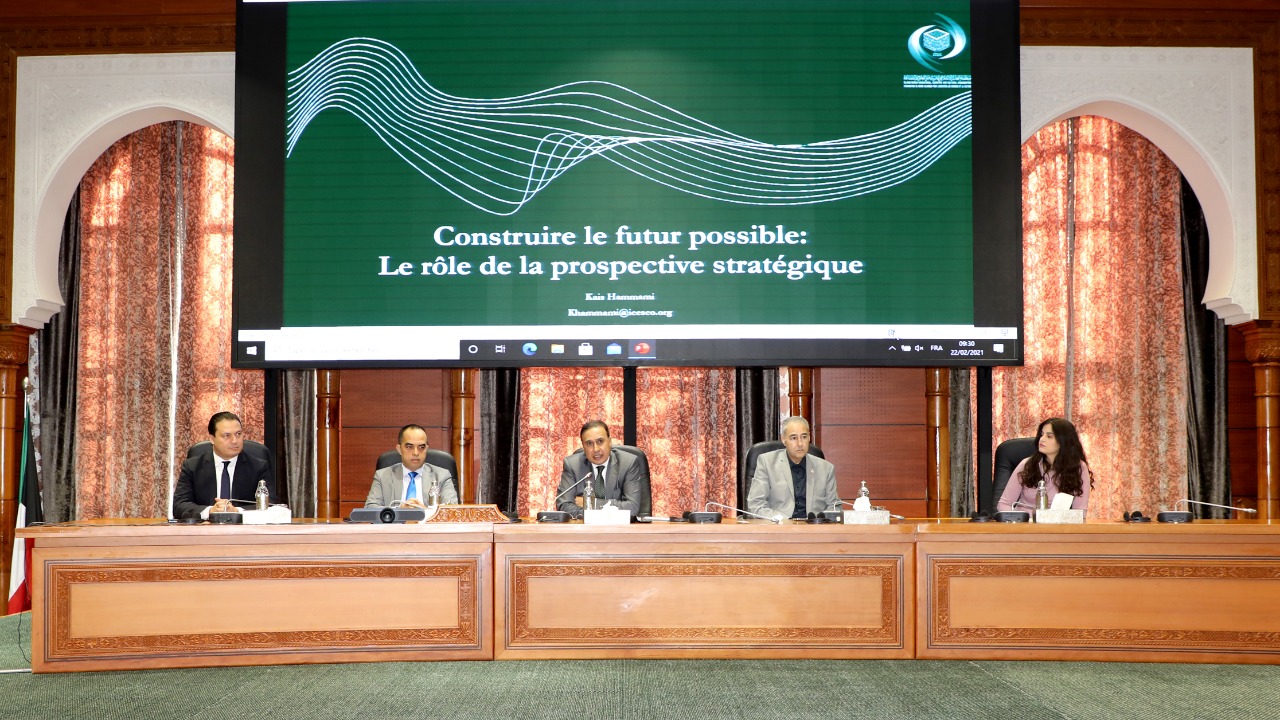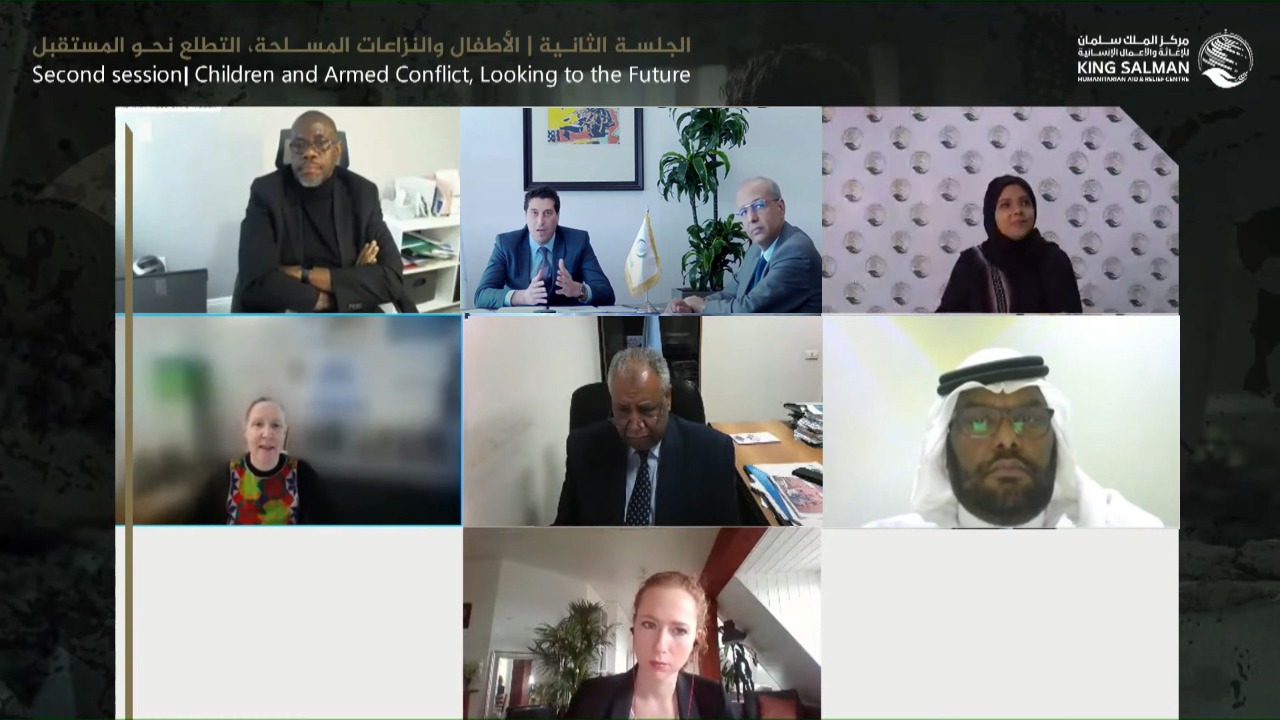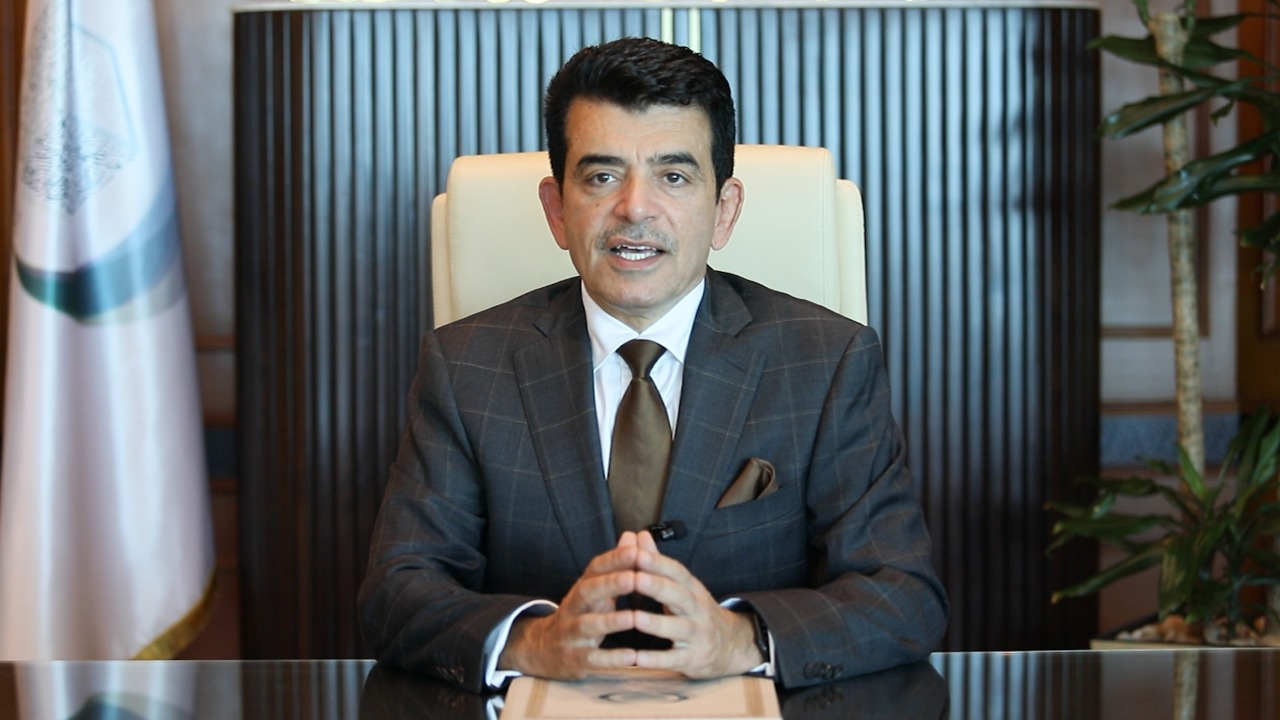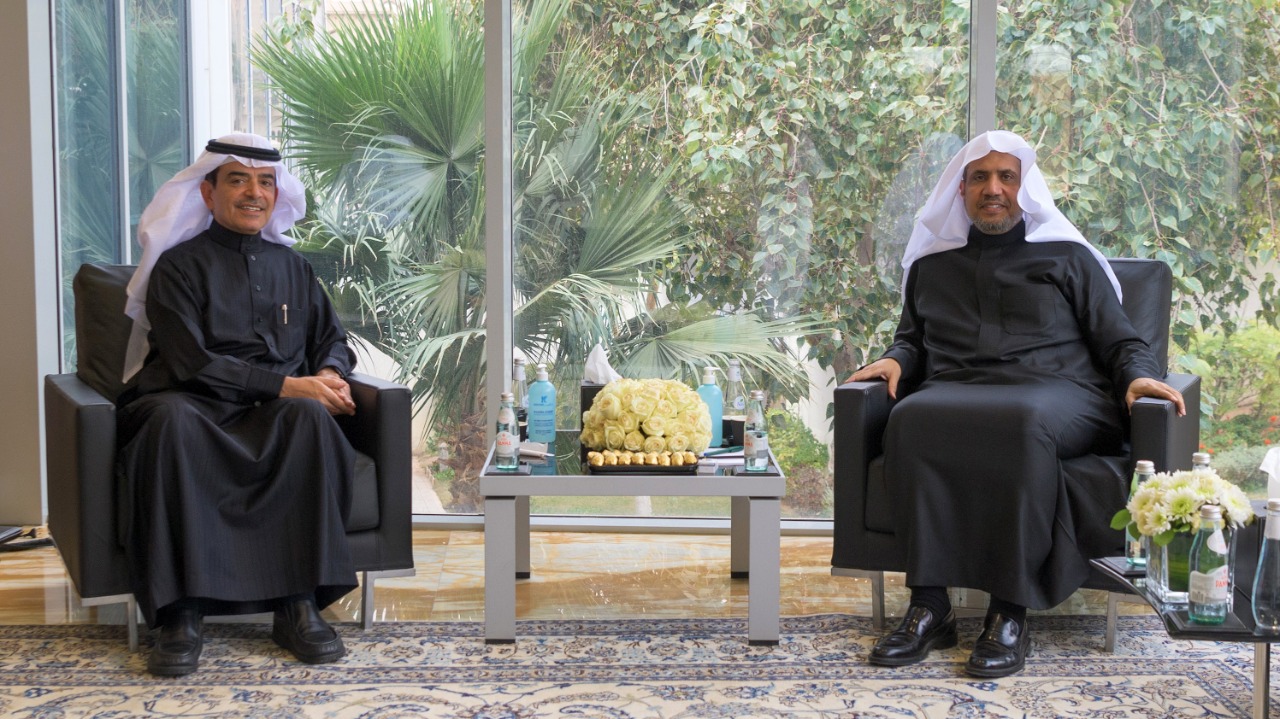The training session on
strategic foresight in service of decision-making kicked off today, February 22, 2021, at
ICESCO headquarters. The Islamic World Educational, Scientific, and Cultural
Organization (ICESCO) and Konrad Adenauer Foundation are holding the two-day
session.
The session benefits 60
students from the Faculty of Legal, Economic and Social Sciences at Mohamed V
University and the Institute for Management Higher Studies (HEM), in addition
to young interns at ICESCO. The event falls under the program to support, build
the capacities of young people, and provide them with leadership training in
the fields of education, science, culture, and communication.
During the opening
session, Dr. Abdelilah Benarafa, Cultural Advisor to ICESCO Director-General,
underscored that the Organization works towards building a new generation of
young men and women in the field of foresight in service of decision-making,
noting that foresight should become a risk prediction tool and a vessel for
finding solutions to future problems and challenges.
Dr. Ali Seghrouchni, HEM
Director, stated that strategic foresight has played a vital role during the
COVID-19 pandemic and has proven crucial in our globalized ear. Speaking next,
Dr. Mohamed Saber Hussainat, Professor at the Faculty of Legal, Economic and
Social Sciences, expressed his thanks to all organizers, stating that the
current session is only the beginning of a series.
Ms. Nuhaila Boukili,
Representative of Konrad Adenauer Foundation, said, at the session’s opening,
that our lives are changing and we must all learn about foresight, expressing
her hope for the continuity of these sessions.
During his presentation,
Dr. Kais Hammami, Director of the Center for Strategic Foresight at ICESCO, and
the session’s moderator, highlighted the Center’s goals including fostering the
culture of foresight and encouraging studies in the field, promoting strategic
diplomacy, and setting monitoring mechanisms. He reaffirmed that recent studies
have shown that nations’ progress and civilizational prosperity cannot be
achieved unless we look forward towards the future, stressing the significance
of this type of training for professionals in the Islamic world, especially in
light of the challenges facing countries.
The training session is
part of a program that the Center for Strategic Foresight at ICESCO launched,
which aims at holding similar training sessions for the benefit of
universities, enterprises, and active parties in Member States’ civil societies
to train professionals and students in their respective fields of work. The
training sessions are in line with ICESCO’s new vision, which is based on
anchoring the culture of anticipation and building the capacities of
individuals as well as institutions in the field of foresight, given its
importance as a tool for facing change, as reaffirmed by the COVID-19 pandemic.


